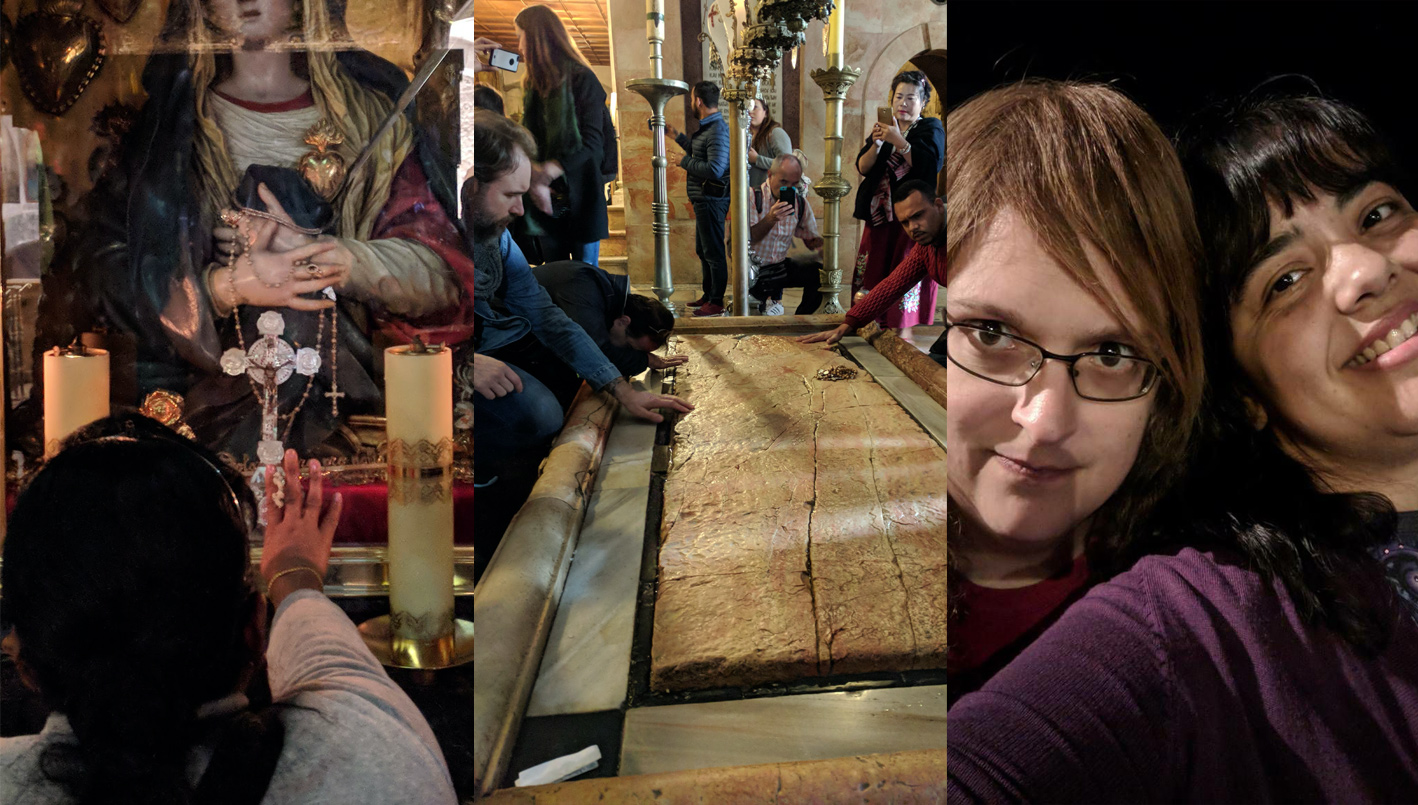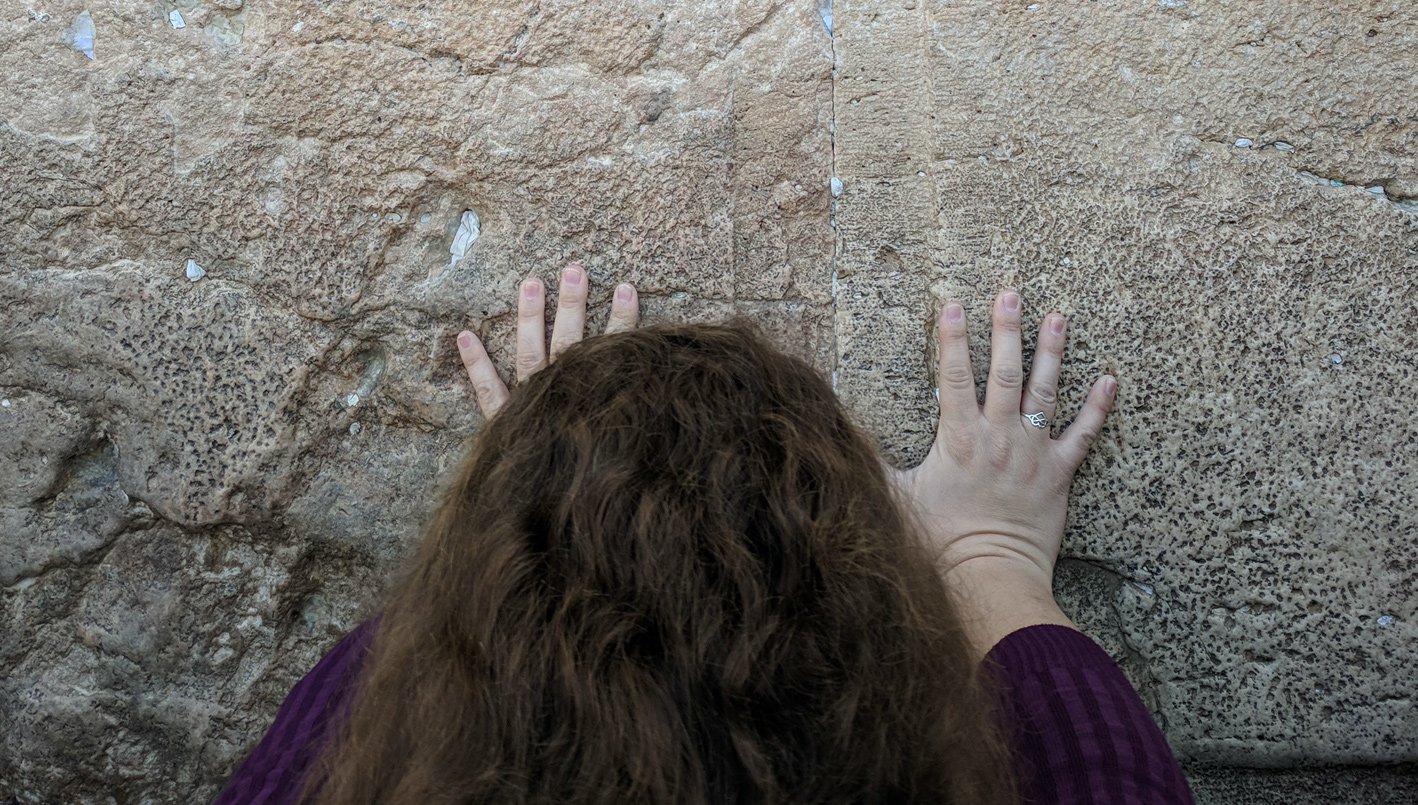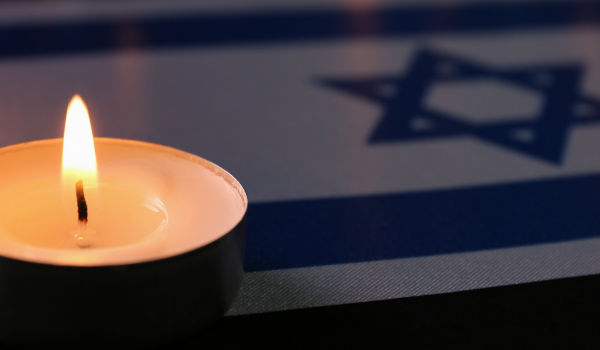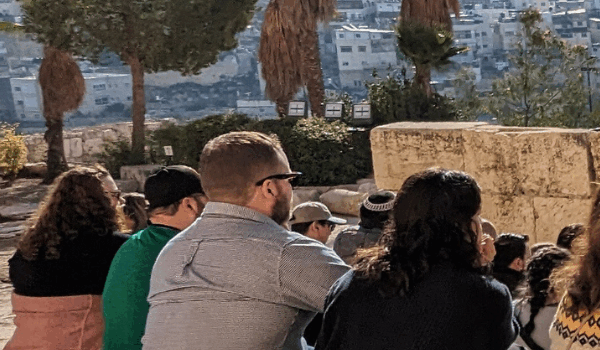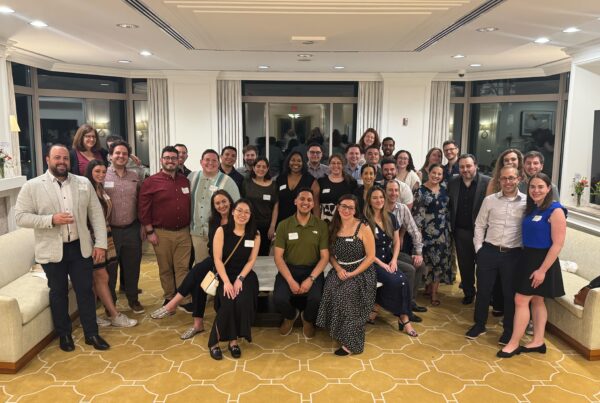June 22, 2018
By: Teresa Jusino, Honeymoon Israel Los Angeles December 2017
I wasn’t expecting tears. I wasn’t expecting to feel the weight of family and memory and responsibility. Not there. Not at the Church of the Holy Sepulchre.
Not at this pilgrimage site for a community and religion I thought I’d left behind. But the things that shape you are always a part of your foundation, and that foundation remains, no matter what newness is built on top. Going to Israel with Honeymoon Israel in December of 2017 taught me just how much my past still meant to me.
I wasn’t just “raised Catholic,” I was Catholic. While Catholic friends of mine drifted away early, I voluntarily went to church on my own on Sundays (my parents went to the Spanish-language mass, and I got myself to the English one). I was in the Youth Choir at St. Boniface Church in Elmont, N.Y. as a young child. By 13, I was a leader of song and a lector for my congregation. For a little over a decade, I was an active participant in the life of my church. For the first twenty-odd years of my life, Jesus meant something to me. I felt connected to God when I worshipped among these people, in that church. Catholicism was home.
When I drifted away, it wasn’t the way it had been for others I knew. There wasn’t any huge rift, or some big, ideological statement. It was a growing apart. It was that thing that happens when you wake up and realize you don’t love someone anymore, not because of anything they did or didn’t do, but because you changed, and they didn’t. Or vice-versa. Or, you both changed and were no longer compatible. Whatever it was, I just stopped seeking there. I stopped seeking God, full stop. In my twenties, I was too self-centered and too determined to assert my independence to admit a need for God.
My mother, the most Catholic of influences in my life, died in 2006 from complications related to diabetes. As I began to navigate my life without her in my mid-twenties, I drifted even further away from God and religion of any kind. It wasn’t that I stopped believing. There just didn’t seem to be much point in doing anything with that belief.
Shortly after her death my father, the parent I was closest to, began exhibiting signs of dementia. Without my mother there to keep him in check, he deteriorated quickly. My siblings and I placed him in a nursing home, where he spent the last seven years of his life not knowing who we were. I felt like an orphan long before he passed away in 2014.
I moved to Los Angeles from New York over six years ago. It hurt to be so far away from my father, but I desperately needed a change, and I couldn’t put my life on hold indefinitely when I knew that my proud, independent, free-spirited father of all people would understand my need to pursue new passions in new places.
And so, without my mother, without my father as I knew him, without a religious community, and without a sense of belonging or attachment to anything in particular, I moved to Los Angeles in 2011. In 2012, I met Ada, the woman who would become my wife and helped me realize that hey, what do you know? I like women, too!
I met Ada, who was born Jewish, at a time when she was becoming more invested in nurturing a deeper relationship with her culture. It was a culture with which I was already familiar and comfortable. After all, I was originally from New York, and everyone in New York is a little bit Jewish no matter where they’re from. Beyond that, my best friend growing up, Robin, was Jewish. She was the first Jewish person I’d ever really met, and from the time I was ten, we were inseparable, and I spent more and more time in her home as part of her family. I started being invited to share in holidays – Hanukkah, Passover – and I danced up a storm to 90s hip-hop at her bat mitzvah. When her grandmother died, I went over during shiva, and I went to the unveiling the following year. Eventually, I danced a hora at Robin’s wedding as her maid of honor. All the while, I found myself drawn to Jewish writers, Jewish culture, and hot Jewish nerds. I wasn’t going around seeking them out, mind you, but it just so happened that a bunch of my crushes throughout my life happened to be really smart, creative Jews in glasses.
My first crushes as a kid were Leonard Nimoy as Spock on Star Trek and Harold Ramis as Egon Spengler in Ghostbusters, if that tells you anything.
So, Jewish culture spoke to me from all directions. In my closest relationships, in the books I read, the shows I watched…and the way I viewed the world. I didn’t know it at the time, but even as a Catholic, I approached religion in a very Jewish way – always questioning, always challenging, talking to God the way I’d talk to my wisest, most caring friend. There was reverence and awe, of course, but I never felt like I needed an intermediary. Saints, and even Jesus to a certain extent, always felt superfluous to me. Like, if there is a God, which I’ve always believed more than I don’t, why would we also need all these other people to pray to? Like, why not just go to the source? It was like the most inefficient customer service or HR Department ever.
As my relationship with Ada became deeper, I thought about the kind of home I’d like to build with her, and it occurred to me that after my parents died, even though I still have my very Catholic older siblings, the people who had always stepped up in my life – Robin and her family, Ada and hers, many of my dearest friends, the art I lost myself in when I was lost – were Jewish. Jewishness had already been holding me in so many ways. I wanted to embrace it more fully.
While I hadn’t committed to converting at first – and Ada never asked or expected it of me – we took the Intro to Judaism class at American Jewish University. It was taught by Rabbi Adam Greenwald, a man who was clearly called by God to be a teacher. He made Judaism so accessible, so welcoming, and so much like home, that by the end of the class, converting seemed not only right, but inevitable. It was through that class that I realized that I not only wanted to become Jewish, but that perhaps there was a part of me that had been Jewish all along, and God was waiting for me to find my way back home.
That class at AJU was also where I first learned about Honeymoon Israel, and it seemed like the perfect way for Ada and I to celebrate our first wedding anniversary.
To call the trip life-changing would be the world’s biggest understatement. It gave us Israel as a touchstone in common, it gave us a new Jewish community to plug into in LA. And for me, it was an opportunity to close one chapter in my life and begin another.
One day of our ten-day journey involved us going to the Church of the Holy Sepulcher and the Kotel in the same day. That day remains my most powerful memory from the trip. It was the first time I’d been in a church since my father died, and my first thought was, “My parents would’ve loved this.” My second thought was, “How ironic that my brother and sister would probably love to be here, but might never make this trip, and here I am on my way to converting, and I’m the one who gets to be here.”
And I cried. Very suddenly, and very heavily. As I watched pilgrims from all over the world touching cloths to relics so deeply meaningful if Jesus is important to you, the way he used to be important to me, I cried. It felt like a loss, like mourning, like goodbye. And while Ada had already expressed to me how important it was that we were in Israel so that she could share her culture with me, I was glad that in that moment, I could share some of my deepest self with her.
Ada had never known me Catholic. She knew I had been, but I don’t think she’d ever seen any actual evidence of how important Catholicism had been to me, my family, and my sense of identity. It would, and will always be in there somewhere, the way the Sh’ma is always there for you if you’re Jewish, even if nothing else remains. Ada held me for a minute and helped me mourn.
Going from there to the Kotel was a shock to the system, as it is the holiest site to my new family, but one to which I am only beginning to have a connection.
I stood at the wall, a prayer on a slip of paper crumpled in my hand. I stood between two Orthodox women in wigs and placed my hands on the wall, finding a place where my crumpled prayer could live. These women were crying, heavily, their foreheads pressed against the stone, their trembling voices saying words in a language I don’t yet speak. I spoke my kavanah in English: Thank you for bringing me here. For giving me the chance to be here for them. I promise that next time I come, I’ll be able to say more in Hebrew. Help me help them hold this wall. Thank you for giving me a new family, and for welcoming me so fully. Please help me do right by you, and by Judaism’s future.
I was so emotionally spent after that time at the wall, and I was grateful that Honeymoon Israel always gave us processing time after every big activity so that we could discuss our feelings. I realized that I’d needed to grieve Catholicism and hadn’t given myself the opportunity to do that before the trip. To be able to do that in the holiest city in the world was like magic. I guess that’s what holiness is.
This was also a beautiful way to say hello to my new Jewish life. I will be going to the mikvah on July 11th, which is appropriate as it’s also my birthday. I’ll be celebrating both my birth and my rebirth. Yet, it was in that moment at the wall that I made my promises to God, and to be able to do that in Judaism’s holiest city was a privilege.
In so many ways, it feels like my life has been one long, meandering journey toward Judaism. I’m so grateful that Honeymoon Israel was there to help me take those final steps before this next big, beautiful chapter in my life: as a Jewish woman, helping my people hold up and protect that wall, bringing with me the possibility of a Judaism beyond the hereditary residue of shared tragedy and pain. One of shared hope and joy.
